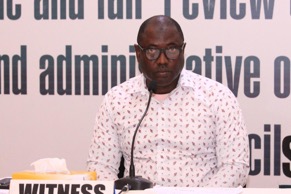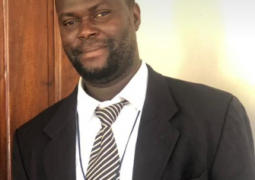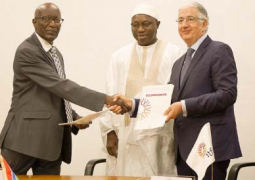
Keita, who presented his witness statement dated February 3, 2025, along with his appointment letter from April 28, 2023, both admitted into evidence, revealed that at the time of his appointment, the council lacked an internal auditor, and he had not met any internal audit reports.
“So, when you came in, there was an empty office?” Lead Counsel Patrick Gomez asked.
“Yes,” Keita responded.
When pressed about auditing payments, Keita did not provide a direct answer, instead pointing to political interference in the council’s operations. He stated that upon his arrival, he and then-Chief Executive Officer (CEO) Sainabou Martin-Sonko sought ways to reform financial management.
“There was a lot of uncontrolled expenditure not being signed and not being requested,” Keita testified.
After assuming his role, Keita conducted an internal audit and submitted a draft report covering February to December 2023 for management review. The report, now admitted into evidence, is divided into two parts, reflecting the leadership of two different CEOs.
Keita disclosed that the council operated five bank accounts, with some closed under Martin-Sonko’s leadership, including those at Reliance Financial Services and GT Bank. The remaining accounts were held with Supersonicz Micro-Finance, Trust Bank, Eco Bank, and Vista Bank.
In a striking revelation, he testified that some council staff had been making direct cash withdrawals from these accounts, bypassing standard accounting protocols requiring direct payments to suppliers. Certain employees, he said, were personally receiving payments on behalf of vendors. Keita requested a week to provide the names of those involved.
At the time of his appointment, Keita said, Abdoulie Khan was serving as the council’s finance director.





